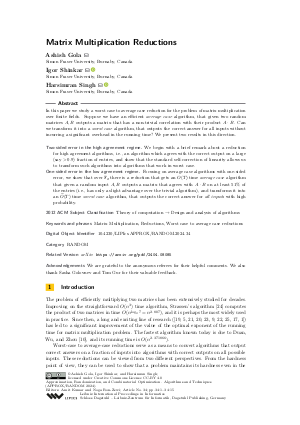LIPIcs.APPROX-RANDOM.2024.34.pdf
- Filesize: 0.74 MB
- 15 pages

 Creative Commons Attribution 4.0 International license
Creative Commons Attribution 4.0 International license






Feedback for Dagstuhl Publishing